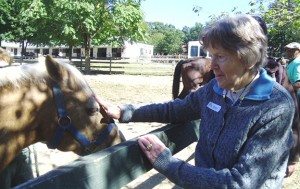One of the more popular quotes from the poet and writer Maya Angelou was that “people will forget what you said, people will forget what you did, but people will never forget how you made them feel.” It turns out to be true for those living with Alzheimer’s disease. A study at the University of Iowa explored how emotions linger even after memory fails. It revealed how important creating a positive environment can be for improving the quality of life for Alzheimer’s patients.
Feelings without Memory in Alzheimer’s
This small study was conducted with a total of 34 older adults. Half of them were in the early stages of Alzheimer’s disease and the other half were considered to be healthy. Researchers began by asking participants how they were feeling at that very moment.
Once they assessed how their trial study members were feeling, they started the first exercise. Participants were shown eight scenes from film and television that were designed to induce sadness. Five minutes after that exercise was complete, they asked each person what they remembered from the scenes and how they were feeling. These questions were repeated at 15 minutes and then again at 30 minutes. After a five minute break, the exercise began again with clips designed to induce happiness and the follow-up question sequence was repeated again.
What researchers found was that even though participants were unable to recall the details of what they saw, they did remember how the films made them feel. Emotions linger and feelings of sadness appear to last longer than happiness. It reinforces what Alzheimer’s experts have been saying for many years: it is important to foster positive emotional experiences for people living with memory loss.
Strategies for Creating Positive Emotions for People with Alzheimer’s
A variety of activities commonly referred to as alternative or adjunct therapies can help to improve the quality of life for people with dementia.
Some of the best ones to consider include:
Music therapy: A video that has now been viewed over nine million times on YouTube highlights the transformative role music can play in the life of someone living with Alzheimer’s disease.
Music pulls from procedural memories in the brain. This part of the brain remains intact longer in people with Alzheimer’s disease. It is why music can trigger emotional recall for people with memory loss. Many people living with Alzheimer’s can sing a song’s lyrics long after they have lost their ability to carry on a conversation.
Art therapy: Art can fill a variety of needs in a person with Alzheimer’s. Because verbal skills often become impaired early in the disease process, it is difficult for people living with dementia to express their feelings. Art is one avenue for doing so. It also gives people a feeling of accomplishment when they have a chance to create something on their own. The process of creating can give the caregiver a chance to reminisce with their loved one as they are working. Even time spent on simple scrapbooking projects can help improve feelings of self-worth among those with dementia. The success of art therapy with people living with Alzheimer’s disease has led many art museums across the country to create programs and special exhibits that showcase their work, such as the MoMA Alzheimer’s Project.
 Pet therapy: Sometimes called Animal Assisted Therapy (AAT), interacting with animals has been proven to help induce positive emotions in people living with a variety of health conditions. From autism to Alzheimer’s, people respond positively to furry, feathered and even finned friends. Studies show that spending even a few minutes a day petting or visiting with an animal lowers stress hormones and increases the feel-good hormone serotonin. That can result in a lower heart rate, lower blood pressure and decreased rates of depression.
Pet therapy: Sometimes called Animal Assisted Therapy (AAT), interacting with animals has been proven to help induce positive emotions in people living with a variety of health conditions. From autism to Alzheimer’s, people respond positively to furry, feathered and even finned friends. Studies show that spending even a few minutes a day petting or visiting with an animal lowers stress hormones and increases the feel-good hormone serotonin. That can result in a lower heart rate, lower blood pressure and decreased rates of depression.
If you would like to learn more about introducing alternative therapies into the daily life of a loved one who lives with Alzheimer’s disease or a related form of dementia, the Alzheimer’s Association has developed a resource guide to help. Alternative and Complementary Therapies and Dementia can be downloaded at no cost.


